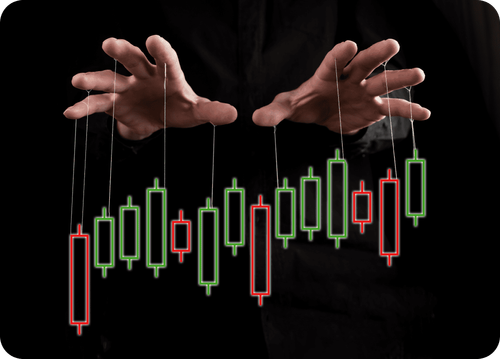Investing In Index Funds, Pros And Cons

What Is an Index Fund?
An index fund is a fund designed to replicate the performance of a specific financial market index. The BROKSTOCK specialist will delve into the definition of these funds, highlighting the nuanced pros and cons that investors must navigate. Additionally, we will guide you through the crucial steps involved in investing in index funds and offer insights into some of the best index funds.
What Does an Index Mean?
An index is a statistical measure reflecting the performance of a portfolio of securities. In South Africa, popular indices include the FTSE/JSE Top 40 Index, tracking the 40 largest companies listed on the JSE. Indices serve as benchmarks, providing investors with a reference point to assess the market's health and performance.
Pros of Investing in Index Funds

Here are advantages of investing in index funds:
- Lower Risk: Index funds offer risk mitigation through diversification. By tracking a broad market index such as the FTSE/JSE Top 40, investors spread risk across multiple sectors, reducing vulnerability to poor-performing individual stocks.
- Lower Taxes: Index funds typically have lower portfolio turnover compared to actively managed funds. Lower turnover translates to fewer capital gains distributions, resulting in potentially lower tax liabilities for investors. This tax efficiency is particularly appealing to investors aiming to optimise their after-tax returns.
- Lower Costs: Cost-consciousness is a prevailing theme in the investment landscape. Index funds, known for their passive management approach, generally have lower management fees compared to actively managed funds. For investors, for whom minimising expenses is a priority, the lower costs associated with index funds contribute significantly to overall investment efficiency.
Cons of Investing in Index Funds
Investing in index funds comes with some drawbacks as well:
- Limited Potential for Outperformance: While index funds provide stable returns, they inherently lack the potential for significant outperformance. In a market where investors may seek high-growth opportunities, the passivity of index funds may be perceived as a limitation.
- Lack of Active Management: Index funds operate on a passive investment strategy, mirroring the composition of a specific index. This means they don't have active managers making real-time decisions to capitalise on market opportunities or shield the fund from potential downturns. In certain market conditions, particularly those requiring nimble responses, this lack of active management may be considered a drawback.
- Exposure to Poorly Performing Sectors: While diversification is a key strength of index funds, it also means investors are exposed to poorly performing sectors within the index. In South Africa, where economic conditions can vary across industries, this lack of targeted selection may result in exposure to sectors experiencing downturns.
The Best Index FundsSouth Africa Knows
Selecting the best index funds to invest in requires careful consideration of the local market dynamics. Some of the well-regarded index funds in South Africa include:
- Satrix Top 40 ETF: This fund tracks the performance of the FTSE/JSE Top 40 Index, providing exposure to the largest and most liquid stocks on the Johannesburg Stock Exchange.
- Satrix GOVI ETF: For investors interested in government bonds, this ETF tracks the performance of the total return price version of the GOVI Index, offering bonds issued by the South African government.
- Satrix RESI ETF: Focused on the resources sector, this ETF mirrors the performance of the FTSE/JSE Capped Resources 10 Index, providing exposure to companies in mining and related industries.
- 1NVEST S&P 500 Info Tech Index Feeder ETF: For those seeking international exposure, this ETF tracks the S&P 500 Information Technology Index, offering a slice of the global tech sector.
- Ashburton Global 1200 Equity ETF: This ETF provides broad global exposure by tracking the S&P Global 1200 Index, giving investors access to a diversified portfolio of global stocks.
Steps for Investing in an Index Fund
To make index funds investment you need some steps to follow:
- Have a Determined Goal: Clarify your financial objectives and risk tolerance. Whether it's saving for retirement or funding a child's education, having a clear goal guides your investment strategy.
- Analyse Index Funds: Explore the variety of index funds to invest in available in the market. Evaluate their historical performance, expense ratios, and tracking error. Understanding these factors helps in making an informed decision.
- Select the Index Fund: Choose an index fund that aligns with your investment goals and risk appetite. You may opt for funds tracking specific sectors or broader indices.
- Buy Shares: Open a brokerage account with a reputable financial institution. Transfer funds into your account and execute the purchase of the selected index fund units.
- Watch: Periodic review is essential. Monitor the fund's performance, ensure it aligns with your goals, and make adjustments if necessary. Economic conditions and market dynamics can impact the fund's trajectory, necessitating a vigilant approach.
Index Funds contra Actively Managed Funds
Index Funds
- Pros: Index funds are attractive due to their lower management fees compared to actively managed funds.
- Cons: While index funds offer consistent returns, they may not outperform the market. Investors seeking aggressive growth might find the limited potential for outperformance a drawback.
Actively Managed Funds:
- Pros: Skilled fund managers have the potential to outperform the market, making actively managed funds appealing for investors looking for higher returns. The flexibility to adapt to changing market conditions can be advantageous.
- Cons: Higher fees are a notable concern, and the performance is subject to the fund manager's expertise. Inconsistent returns and the risk of underperformance compared to the market are also considerations.
Bottom Line and Key Takeaways
Investing in index funds can be a prudent choice for many investors. The JSE offers various index options catering to different risk appetites. However, understanding your financial goals, conducting thorough research, and periodically reviewing your investments remain critical aspects of a successful investment strategy.
Lloyd has been trading, investing and teaching about financial markets for over a decade. He has a thorough understanding of financial services provider legislation as well as investment asset classes and categories. Lloyd is a certified RE5 representative and holds a COB Investment certificate from the Moonstone Business School of Excellence.
Index funds are generally better suited for long-term investments due to their passive nature and focus on mirroring market performance.
Yes, many brokerage platforms in SA allow investors to access and invest in global index funds.
It's advisable to review your portfolio annually to ensure alignment with your financial goals.
Read also
BCS Markets SA (Pty) Ltd. is an authorized Financial Service Provider and is regulated by the South African Financial Sector Conduct Authority (FSP No.51404). BCS Markets SA Proprietary Limited trading as BROKSTOCK.
The materials on this website (the “Site”) are intended for informational purposes only. Use of and access to the Site and the information, materials, services, and other content available on or through the Site (“Content”) are subject to the laws of South Africa.
Risk notice Margin trading in financial instruments carries a high level of risk, and may not be suitable for all users. It is essential to understand that investing in financial instruments requires extensive knowledge and significant experience in the investment field, as well as an understanding of the nature and complexity of financial instruments, and the ability to determine the volume of investment and assess the associated risks. BCS Markets SA (Pty) Ltd pays attention to the fact that quotes, charts and conversion rates, prices, analytic indicators and other data presented on this website may not correspond to quotes on trading platforms and are not necessarily real-time nor accurate. The delay of the data in relation to real-time is equal to 15 minutes but is not limited. This indicates that prices may differ from actual prices in the relevant market, and are not suitable for trading purposes. Before deciding to trade the products offered by BCS Markets SA (Pty) Ltd., a user should carefully consider his objectives, financial position, needs and level of experience. The Content is for informational purposes only and it should not construe any such information or other material as legal, tax, investment, financial, or other advice. BCS Markets SA (Pty) Ltd will not accept any liability for loss or damage as a result of reliance on the information contained within this Site including data, quotes, conversion rates, etc.
Third party content BCS Markets SA (Pty) Ltd. may provide materials produced by third parties or links to other websites. Such materials and websites are provided by third parties and are not under BCS Markets SA (Pty) Ltd.'s direct control. In exchange for using the Site, the user agrees not to hold BCS Markets SA (Pty) Ltd., its affiliates or any third party service provider liable for any possible claim for damages arising from any decision user makes based on information or other Content made available to the user through the Site.
Limitation of liability The user’s exclusive remedy for dissatisfaction with the Site and Content is to discontinue using the Site and Content. BCS Markets SA (Pty) Ltd. is not liable for any direct, indirect, incidental, consequential, special or punitive damages. Working with BCS Markets SA you are trading share CFDs. When trading CFDs on shares you do not own the underlying asset. Share CFDs are complex instruments and come with a high risk of losing money rapidly due to leverage. A high percentage of retail traders accounts lose money when trading CFDs with their provider. All rights reserved. Any use of Site materials without permission is prohibited.





